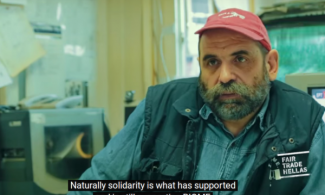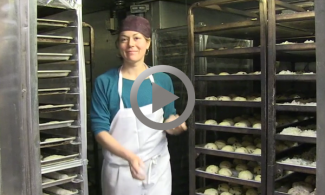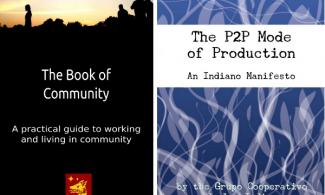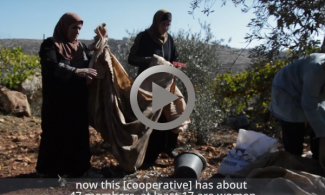Occupy and the Solidarity Economy perspective
Solidarity Economic perspectives develop from penetrating reflection on our actual experience to find the questions we need to be asking
Jesse Goldstein has a very perceptive two-part blog on how OWS had actually created a commons and this “had created such incredible infrastructure for the occupation, yet without an occupied space, the question before us was whether any of this infrastructure could be maintained within the market economy that we were struggling against.”
His title fits his treatment really well: OWS Screenprinting: Markets, Commons, and Questions.
There are two things about Jesse’s blog that I really appreciate, even love. First, he writes from his on-the-ground experience with the OWS Screenprinters Guild that emerged during the actual occupation of Zucotti Park, its struggles since the closedown of that occupation, and the emergence from the Guild of the OWS Screenprinters Cooperative and its struggles to become a viable alternative economic enterprise.
Second, he lays out the questions that have risen from his reflection on those experiences and the ‘compromises’ they confronted him and his mates with:
…semi-sufficient alternatives are certainly possible, and there are many inspiring examples to cull from – but this forces us to ask whether and how the political project is transformed when self-sufficient aspirations have to settle for semi-sufficient alternatives.
Do such experiments keep alive a radical possibility in its partial realization? Or is there a categorical difference that is being evaded? What fills the space between the development of a non-capitalist vision and the pragmatism of a semi-capitalist reality?The struggle – with the OWS Screenprinters – seems to hinge on this distinction. For a brief period, OWS felt as though we were creating a truly alternative economy. And yet now that the park is no longer providing this illusion for us, the bitter reality of our persistent and seemingly unavoidable dependence upon the circulation of capital, its markets, and even its “community of money”, has begun to set in. Is there really that much difference between “anti-retailing” and just plain old-fashioned retailing? Is there really a way to extract enough money from the movement and its supporters for three Coop members to pay their rent and still feel as though they are building an alternative vision of a better possible economy? “OWS is just not a good market.” Perhaps this is just stating the obvious – really that was the whole point wasn’t it? To NOT be a good market; to fight against the savage economic violence waged upon us by precisely these sorts of “good” markets?
I only have questions, a lot of questions – and will really look forward to some reader responses. That said, I won’t just stand aside while trying to answer them. I’m still part of the Guild, and when it’s warm enough out, we’ll be back printing in public spaces throughout NYC.
In Part 1 he lays out the immediate context in which the OWS screenprinting projects emerged. In Part 2 he gets down to the political and business issues they had to deal with and his reflections on these.
Robust Solidarity Economic perspectives develop from this kind of penetrating reflections that seek to identify the questions we need to wrestle with. It begins with the wisdom that we do not have answers. We are a small but growing global experiment that will move forward open ears, sharp minds, and big hearts.





Add new comment